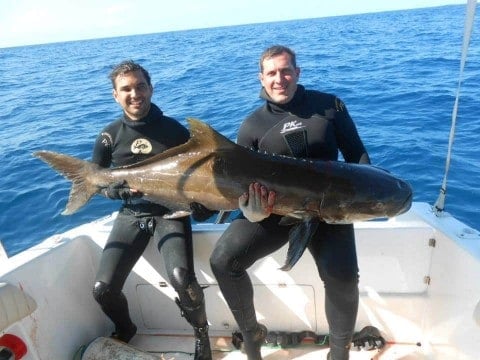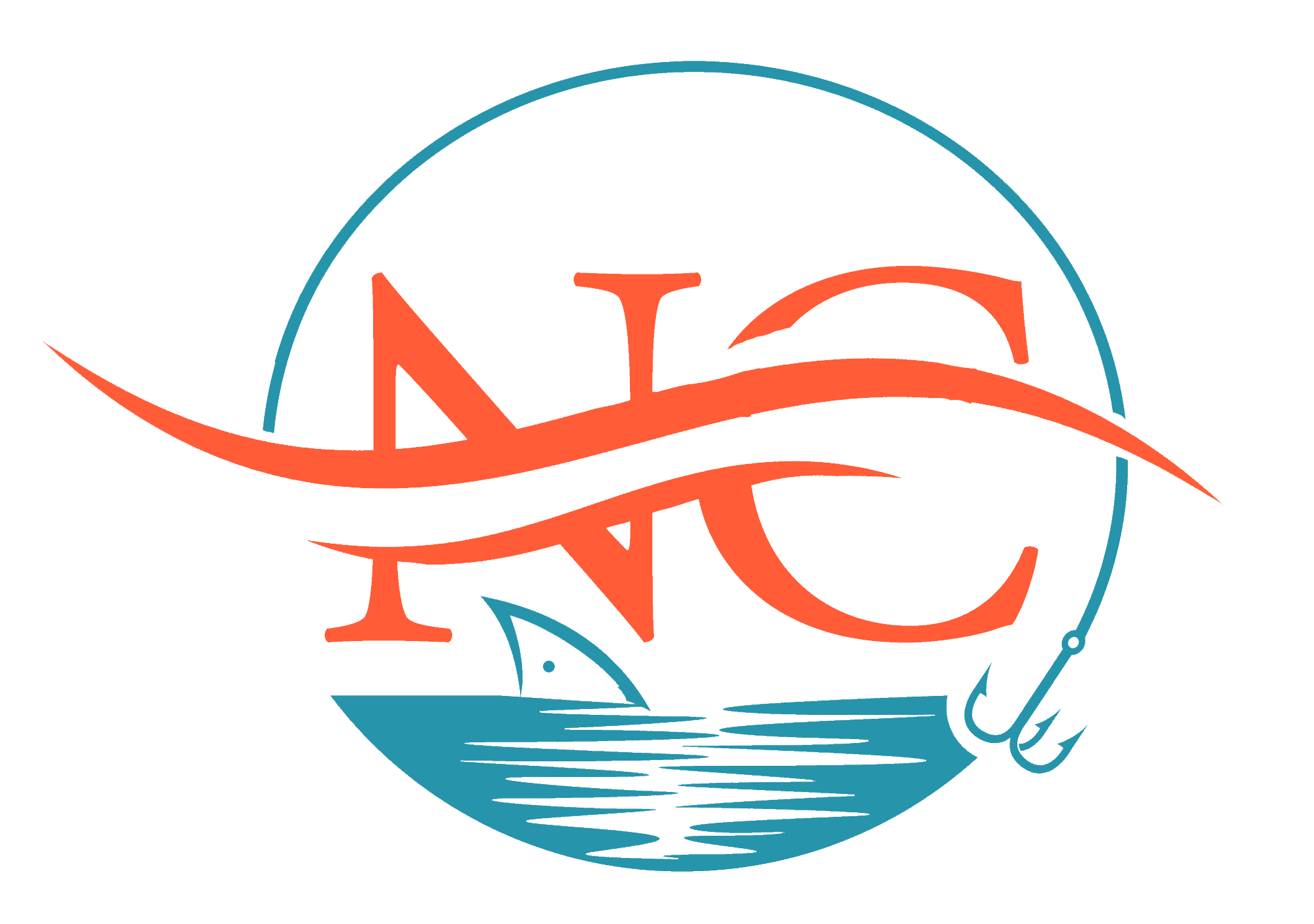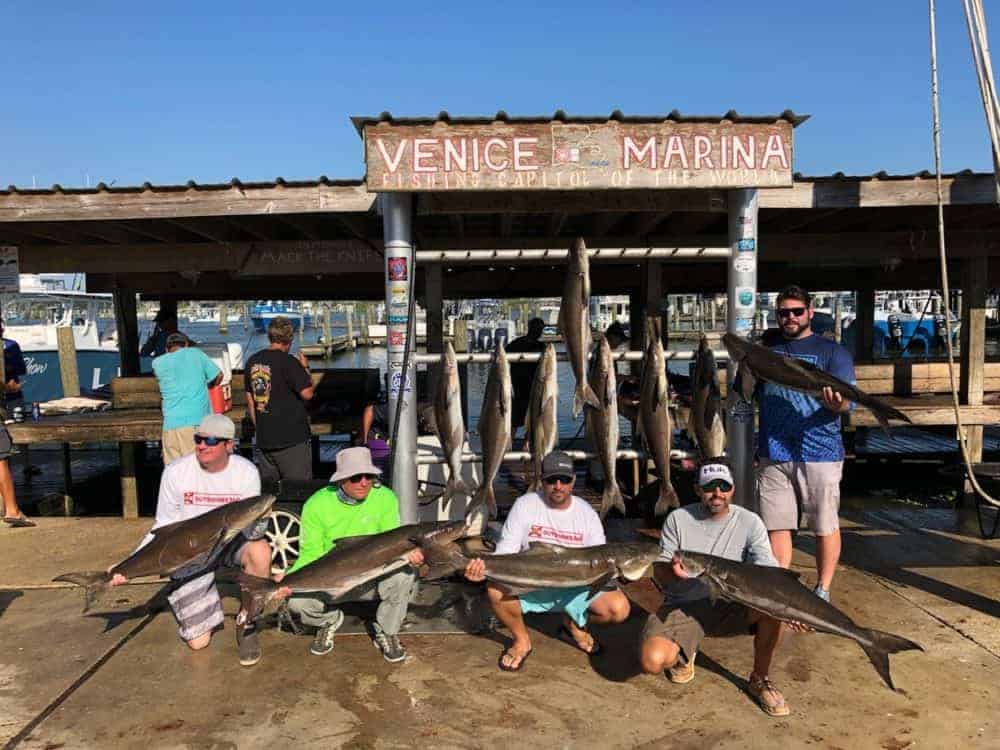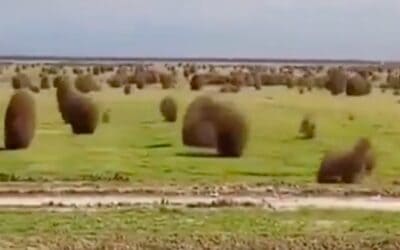
The first cobia I remember seeing in person was a 35-pounder my dad caught in a fishing tournament. It blew my mind. I was only 13, and I remember thinking, this fish is an absolute monster, and surely they’ll win the tournament. Turns out they didn’t catch much else – they needed 6 fish total, so they didn’t win anything other than some grilled cobia steaks for their effort.
Over the course of the next few years I remember seeing cobia caught from time to time, but there was never a rhyme or reason. Typically, someone got lucky either fishing on a flat, beach, or wreck, and a cobia straight from Dumb and Dumber would fall victim to the first bait that hit the water. The only consistent element in cobia fishing was the inconsistency.
On my first summer break from Florida Gateway College (LCCC) and a lost baseball season, I returned home with a bad left elbow, and a date with Tommy John (surgery). So, I decided to fish practically every day, and work nights. We typically tarpon fished until lunch, when we’d catch some fresh reds and snook, grill them up, and then tarpon fish until dark.
On one of these trips while getting bait we caught a solo blue runner – not typical tarpon bait. I suggested we keep it, just in case we saw a cobia. Call me Nostradamus, because 6 hours later we were gaffing a 65 cobia that is still my personal best. That fish was 60″ long, but it was just a baby compared to the latest monster cobia!
The story begins about 4,500 miles southeast of Lake City, in Marataizes, Brazil. It’s here where spear fisherman Marcelo Mello Lobato lives. We were able to contact Lobato, who tries to dive once or twice a month, usually on weekends or holidays when the sea conditions allow aboard a 21-foot boat with a newly acquired 2013 150 Yamaha 4Stroke.
On the boat’s second journey to sea, Lobato was with Cyrus Bravin and Gabriel Santana. Their destination was 50-miles away, to what Lobato describes as a large iron pipe which fell from a cargo ship to the depth of 26-meters, about 85-feet deep. The spot is known for producing large Cobia, known as “bijupira”, which means “tasty fish” to the locals.
The day started well, as the crew secured a large 54-pound cobia. Thirty-minutes after taking this fish, Bravin entered the water once again to see many smaller cobia still around.
Cobia, as curious as they can be, began to migrate toward Bravin. It was then that the large fish appeared. Bravin held about 30 feet below the surface until he got a shot, striking the beast.
“It continued to swim near the surface as if nothing had happened” – Lobato
The spear that was now stuck in his back did not phase the great bijupira. “It continued to swim near the surface as if nothing had happened,” describes Lobato. “I swam over to see if we could get another shot.”
Then the fish became aware that something was wrong. He swam with all his might to the bottom, where the anglers thought the fish would become entangled in the pipe. After 10-minutes the cobia began to slowly rise from the bottom. When it was about 15-feet from the surface, Lobato hit the cobia once again. The fish bolted a second time for the bottom, but weary and tired, it came to the surface.
Bravin lined up a third shot as the fish rose, this time immobilizing the great bijupira. The 30-minutes of back and forth between anglers and the great cobia came to an end. The anglers secured the enormous fish in the boat, only then relaxing and posing for a few pictures.
When they arrived home the fish was weighed on two separate scales at a fish company to confirm the weight. The final result was 78 kilograms, or 172-pounds! The fish is currently being submitted for an International Underwater Spearfishing Association record. The current record is 145.9 pounds, taken on February 2nd, 2011 by Valente Baena off the coast of Mexico.
Previously, the crew had seen huge cobia but the largest one they captured was 72-pounds. Other divers had captured cobia over 100-pounds before. Two weeks after the capture of the great cobia, Lobato speared one at 45-kilos, or 99 pounds.
Believe it or not, Lobato says there were bigger fish next to that one but he couldn’t get in a shooting position to take one larger than the 99-pounder.
If you’re not a fan of spearfishing, and you’re looking to catch a record cobia, the all-tackle hook and line record is 135 pounds 9 ounces, taken by Peter Goulding off the coast of Australia on July 9th, 1985. My two suggestions in such an attempt would be to invest in enormous tackle, and make sure to always save your blue runners. With cobia, you just never know when your shot will be.
Related News
WATCH: Dropping A GoPro Under A Fishing Pier Is Wild
We all know what it looks like when fish are caught at a fishing pier, but what does it look like...
Check Out The Biggest Backyard Rope Swing In The World
What could be better than a backyard rope swing? If you answered with the biggest backyard rope...
Watch Angler Solo Spear And Bow Fish On Island
It doesn't get much better than going to an island by yourself to bow fish and enjoy all the fresh...



